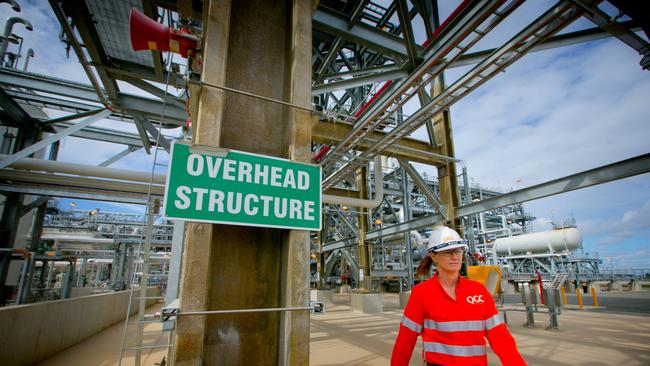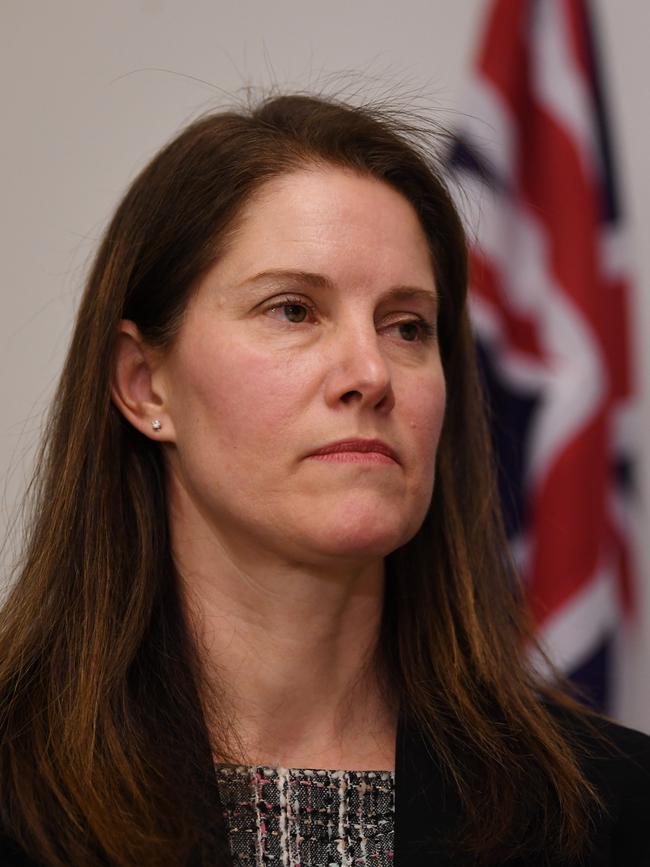Activists ‘waging a virtual war with religious zealotry’ against oil and gas industry
Energy players should band together to battle well-funded professional activists, says Shell.

One of Australia’s biggest foreign investors has warned the energy sector faces a battle with a new breed of well-funded professional activists and armies of ideologically driven volunteers aiming to destroy the oil and gas industry.
Shell — owner of the $20 billion Queensland LNG export facility and $US12bn ($17.3bn) Prelude floating gas project off the northwest coast — said energy companies face strong ideological opposition in Australian cities and called for the industry to band together and fight for its role in the energy mix.
“Our opponents are well orchestrated, well-funded and well drilled on tactics aiming to destroy an industry that has been an overwhelming force for good,” said Zoe Yujnovich, head of Shell Australia and chair of the Australian Petroleum Production & Exploration Association.

“Armed with megaphones or iPhones, an increasing number of professional activists and huge armies of ideologically driven volunteers are waging a virtual war with religious zealotry.”
Ms Yujnovich cautioned energy producers to avoid being drawn into a ‘trap’ of pitting oil and gas against renewables or domestic gas against export opportunities.
“These oppositional constructs are as deceptive as a sideshow hall of mirrors because they create face-offs between mutually beneficial technologies,” Ms Yujnovich told the annual APPEA conference today. “We must reframe the debate to explain that, for example, not only can natural gas and renewables coexist, they are perfect energy partners.”
Shell’s Australian boss also reiterated a call for a “joined up national energy policy” consistent with national climate change goals, lowering the barriers to spur domestic gas supply and tax reform to ensure Australian remains globally competitive.
Diverting gas from Queensland’s booming gas sector down to the energy-short southern states of NSW and Victoria also needs to be reconsidered given high ongoing tariffs.
“Presently, using Queensland gas to supply southern markets does not deliver lower prices because of the additional, and significant, cost of transporting the gas over thousands of kilometres,” Ms Yujnovich said. “An alternative is to convince state governments to reverse onshore gas development bans or find more effective pipeline regulatory regime to lower costs involved in transporting gas around the market. Providing transparency on supply and pricing to the domestic market eases the pressure for government to intervene.”
Shell said Australia is failing to make the most of its vast natural resources, partly due to government decisions to freeze exploration.
“Increasing swathes of southern Australia, onshore and offshore, are being locked up, preventing resource and energy development. It should be unthinkable that a resource-rich country like Australia is prevented from looking after the energy needs of its own people and helping to lift the hundreds of millions of people around the world out of energy poverty.”
Ms Yujnovich’s warning follows a threat by NSW gas users to pull $2bn of planned spending from the state as frustrations mount that delays approving Santos’ Narrabri project will cripple the viability of manufacturers’ investment pipeline.
Santos wants the NSW government to outline its approval timeline for its $3bn coal-seam gas project in the Gunnedah Basin just days after the Queensland government agreed on a deadline to make a call on Adani’s long-delayed Carmichael coal mine.
Santos’ demand has been reinforced by the industrial customers who have agreed preliminary deals to buy gas from Narrabri, which could meet half the gas needs of the state.
The NSW government must take action on Narrabri, Ms Yujnovich said.
“We will be watching closely the New South Wales Government’s response to industrial customers over gas contracts. The Narrabri gas project will offer local jobs, royalties, more secure supply and downward pressure on prices in NSW. It just needs the NSW government’s go-ahead.”


